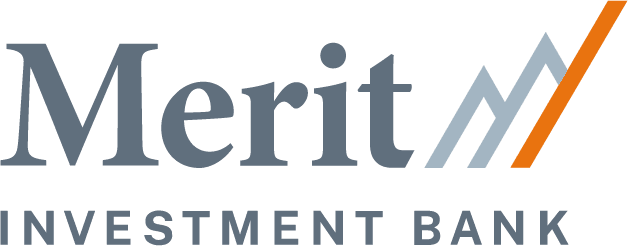While we are surprised by the potential “deal killers” every time we execute the sale of a business, there are a few things that remain constant. Our job as Investment Bankers is to maximize your value in the market by finding the right fit between you and a buyer. However, the hard truth is that the value they pay is directly determined by how well prepared you are.
We’ve all seen the incredible valuations paid in recent transactions that top the news, but why are they paying those valuations? It’s typically because the company had addressed all the critical valuation issues that the buyer was looking for BEFORE they engaged.
These issues are:

- Know your differentiators and message – Why are we better?
- Whose Brand Is it? – Yours or your partners’?
- Core Revenue Growth – What makes us sustainable?
- EBITDA or Revenue Multiple – Which or what can you expect?
- Financials Systems – What are the metrics that drive your business?
- Customer Relationships – Who loves you now?
- Know your IT Risk – Are my systems protected?
- Looking to the Future – What would I do if I kept the business?
Know your Message – Be VERY clear about who you are and what makes you different in the market. It’s not good enough to say,” We build software.” You need to be able to say,” We build the best software that does X, Y, and Z in the world.” Nobody is better than us at _____.'” If you can’t say this today, your priority needs to be to figure this out.
Whose Brand Is It? – If you sell your technology through a channel, whose brand is on the product? Suppose the brand is that of your channel partner (i.e., a “white-labeled” technology product). In that case, you’ll be viewed as a commodity tech manufacturer and will get limited blue-sky value for your business. Buyers want to be proud of their tech company purchase. If this is you, evaluate ways to get your tech product delivered with your brand through new solution channels so the majority of the revenue can be established from your brand or understand that your business will be valued without a premium for the brand – and that’s okay!
Core Revenue Growth – It’s no secret that 2020 was a challenging year; therefore, if you can show that you’ve righted the ship, or better, are growing despite 2020, you’ll be more attractive as an acquisition target. Between now and the time we help you find a buyer, you’ll need to ensure your sales and marketing processes are running on all cylinders and that you know how and why you’re (a) sustaining your core business and (b) showing revenue growth. The buy-side in an M&A transaction wants to know that your revenue is sustainable and not simply based on relationships that leave if leadership changes. Technology buyers expect that you should be driving revenue to exceed 15% year over year trending growth – as long as it’s profitable growth.
EBITDA or Revenue Multiple – Years ago, software companies switched to a Software-as-a-Service (SaaS) model, and the public and private equity markets rewarded them with substantially higher valuations. If we can get someone to sign up for a $50/month software subscription, the likelihood of them canceling once they are on “autopay” goes down exponentially because we have eliminated the need to decide to purchase or renew every year. To the M&A market, this is a significant extension of the lifetime value of a customer and translates into higher multiples on the business valuation. Businesses are either sold on a multiple of EBITDA, a multiple of Annual Recurring Revenue (ARR) or Contracted Annual Recurring Revenue (CARR). A multiple of revenue is substantially larger than a multiple of EBITDA. If your business has an element of long-term software support or maintenance, consider migrating to a recurring revenue model. You’ll likely see a more considerable value in your M&A transaction.
Financial Systems – While you need to have your financials in order and current – Income Statement, Balance Sheet, Statement of Cash Flows – your financial systems need to give the buyer the confidence that the financials and metrics behind the company can be produced with accurate results in the future. Smaller companies tend to have trouble producing the reports critical to proving to a buyer that you know what you’re doing. If the core metric that drives your recurring revenue is customer retention, you need to have systems to measure and monitor this monthly. If you don’t, the buyer will discount the value based on that metric. Identify your core business drivers and ensure you have systems to provide them to you. For example, in a SaaS business, the percent of recurring revenue year-over-year (YoY), annual subscription growth rate, and customer retention are key indicators. To optimize an M&A transaction to sell, a company needs to see over 70% of recurring revenue with at least 15% annual growth and retention rates above 80% YoY.
Customer Relationships – You need to know who your customers are and why they love you. It would be best if you had more than a handful of customers, with some of them that will be a reference for you. If your largest customer represents more than 15% of your business, that revenue will likely be discounted against your exit value. The amount of the discount will be subject to the quality of the contract. This is called customer concentration. Just like your lender, a buyer will only value a diversified business. The exception is if the contract is so ironclad that the customer can’t get out of it, which is rare. Take inventory of your customer relationships and contracts. If customer concentration is an issue, you may look at acquisition strategies to mitigate the risk by acquiring someone with a business model that aligns with your metrics strategy of SAAS retention, ARR, and growth rate.
Know your IT Risk – GDPR is a real thing. For those that don’t know, GDPR (General Data Protection Regulation) is the data security standard that became law in the EU a few years ago. Expect the US to follow suit (California has already passed a similar law). A buyer doesn’t want to take on the liability of your carelessness (lack of attention to data security). Cyber risk is a specific area of diligence for most M&A buyers, and a good executive understands that managing risk, especially cyber risk, is a core value. While we often see cyber-crimes involving the largest companies publicized, smaller companies are not immune. Most cyber-crimes are automated, not targeted, and therefore can affect any company at any time. The costs can be in the millions of dollars and include fines for lack of systems and processes, costly remediation, devaluation of your brand, and lost opportunity cost. We recommend having a 3rd party audit your systems to ensure that things like security, redundancy, proper record keeping and reporting will continue after the sale. We’re happy to make recommendations.
Growing in the Future – It may seem counterintuitive that you need to know your growth plans if you’re selling your business. However, a buyer is buying the future, not the past. If they’re going to expect better than average returns on your business, they’ll want to know how and why. They’re going to want to understand how they can improve your retention, increase your ARR and improve your growth rate. While they’ll have their ideas (which is why they’re interested), they’ll want to learn from your experience and industry knowledge. It’s your job to cast the vision, and for financial buyers, in particular, show them how they will grow the firm’s value over time. In some cases, your total compensation from the transaction will depend on the future growth opportunity.
Assuming you have great technology, these elements packaged together create the image of an exciting company that buyers will compete to be a part of. However, we recognize that you don’t simply snap your fingers and make this happen. Good companies reflect on where they are today and seek counsel on what needs to be done to achieve their goals and maximize exit velocity. Look back through these elements and grade yourself now. How did you score?

To arrange a confidential call to discuss how Merit Investment Bank helps companies and their leaders prepare for and achieve exit velocity please call Todd Ostrander,
Managing Director @ 253-377-5767
or email Todd.Ostrander@meritinvestmentbank.com



0 Comments